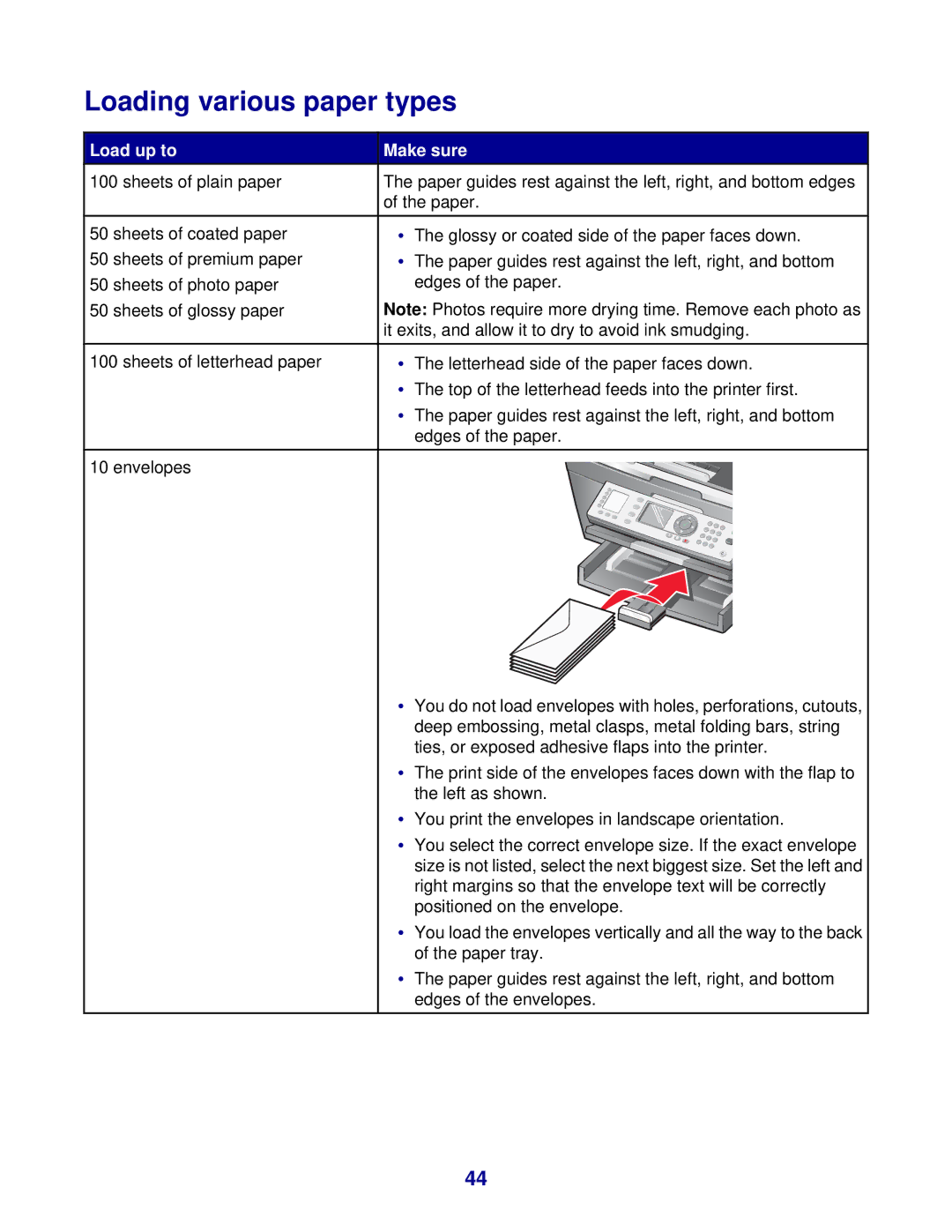
Loading various paper types
Load up to |
| Make sure | ||
100 sheets of plain paper |
| The paper guides rest against the left, right, and bottom edges |
| |
|
| of the paper. | ||
|
|
|
|
|
50 sheets of coated paper |
| • | The glossy or coated side of the paper faces down. | |
50 sheets of premium paper |
| • | The paper guides rest against the left, right, and bottom | |
50 sheets of photo paper |
|
| edges of the paper. | |
50 sheets of glossy paper |
| Note: Photos require more drying time. Remove each photo as | ||
|
| it exits, and allow it to dry to avoid ink smudging. | ||
|
|
|
|
|
100 sheets of letterhead paper |
| • | The letterhead side of the paper faces down. | |
|
| • | The top of the letterhead feeds into the printer first. | |
|
| • | The paper guides rest against the left, right, and bottom | |
|
|
| edges of the paper. | |
|
|
|
|
|
10 envelopes |
|
|
|
|
•You do not load envelopes with holes, perforations, cutouts, deep embossing, metal clasps, metal folding bars, string ties, or exposed adhesive flaps into the printer.
•The print side of the envelopes faces down with the flap to the left as shown.
•You print the envelopes in landscape orientation.
•You select the correct envelope size. If the exact envelope size is not listed, select the next biggest size. Set the left and right margins so that the envelope text will be correctly positioned on the envelope.
•You load the envelopes vertically and all the way to the back of the paper tray.
•The paper guides rest against the left, right, and bottom edges of the envelopes.
44
